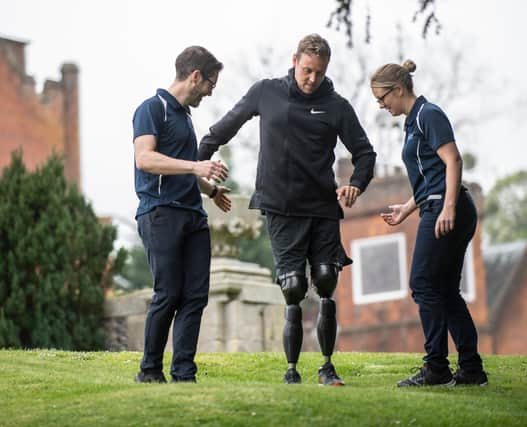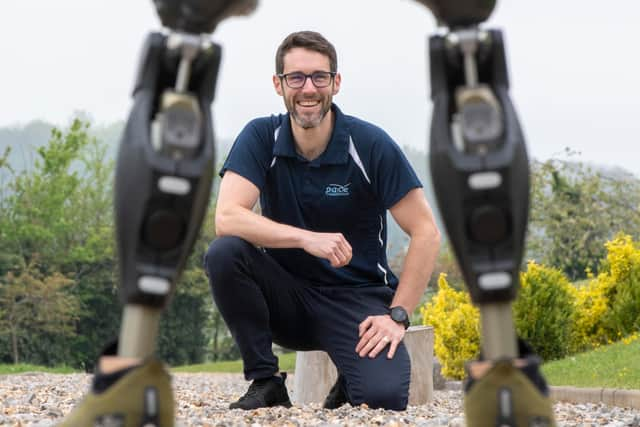Private clinic launches in Glasgow to serve amputees


Pace Rehabilitation, which says it is the UK’s largest independent private provider of amputee rehabilitation services, has launched its first clinic in Scotland. The practice is led by veteran prosthetist David Morrison.
He is joined by Helen Scott, billed as one of Scotland’s senior physiotherapists with clinical responsibility for amputee rehabilitation, and Louise Whitehead, who has spent 25 years in the vascular and amputee rehabilitation service in Dundee and teaches physiotherapy students from Aberdeen and Edinburgh universities.
Advertisement
Hide AdAdvertisement
Hide AdPace Rehabilitation was established in 2003 by a small team of experienced clinicians who wanted to provide a more integrated approach to the treatment of people who had sustained limb loss. It has treated more than 3,000 patients during the past decade from two sites in England and works with researchers from universities, including Strathclyde, to provide expert input on research projects and participate in testing and advising on new technology.


Patients are referred to the clinic by serious injury law firms, insurers and case managers working with people who have sustained major trauma in a road accident or a workplace incident. Most patients have undergone major amputations of the upper or lower limbs.
The clinic manufactures bespoke prosthetic devices in house, and provides psychological support as well as physical rehabilitation in the form of prosthetic and therapy input. Patients are assessed, measured and treated over several sessions to optimise their outcome.
Toby Carlsson, founding director at Pace Rehabilitation, hailed the launch of the service north of the Border. “NHS provision is good in Scotland, but some aspects of prosthetic provision can only be accessed privately. We are excited to be able to address that need locally with the help of such an experienced team.
“As well as giving patients swift access to the latest technology in prosthetics, our presence in Scotland opens up more choice for integrated treatment ranging from psychological support to physiotherapy.”
Mr Morrison said that while there is a very good level of NHS provision in Scotland, private provision gives the clinician more time with patients throughout the process. “Combined with individual physiotherapy sessions tailored to our patient’s needs, we can make sure they achieve the best possible clinical outcomes,” he added.
“The prosthetic hardware NHS Scotland provides is high quality but it does have its limitations. Private services can offer the best, most appropriate equipment unhindered by the restrictions imposed on the NHS.
“I’m excited about launching our clinic in Glasgow and I’m delighted to be joined by two trusted colleagues I have worked with for many years. Launching our services in Scotland will make a positive impact for patients and their families impacted by limb loss.
Advertisement
Hide AdAdvertisement
Hide Ad“All our work is geared towards enabling our patients to return to the quality of life they had before their life-changing incident. Anyone can become an amputee and we see people from all walks of life. They all have one thing in common – which is the need to get their lives back on track with minimum delay so they can go back to work and support their families.”
A message from the Editor:
Thank you for reading this article. We're more reliant on your support than ever as the shift in consumer habits brought about by coronavirus impacts our advertisers.
If you haven't already, please consider supporting our trusted, fact-checked journalism by taking out a digital subscription.
Comments
Want to join the conversation? Please or to comment on this article.